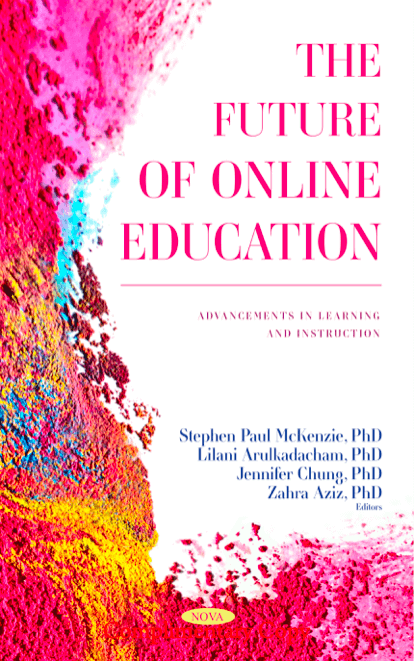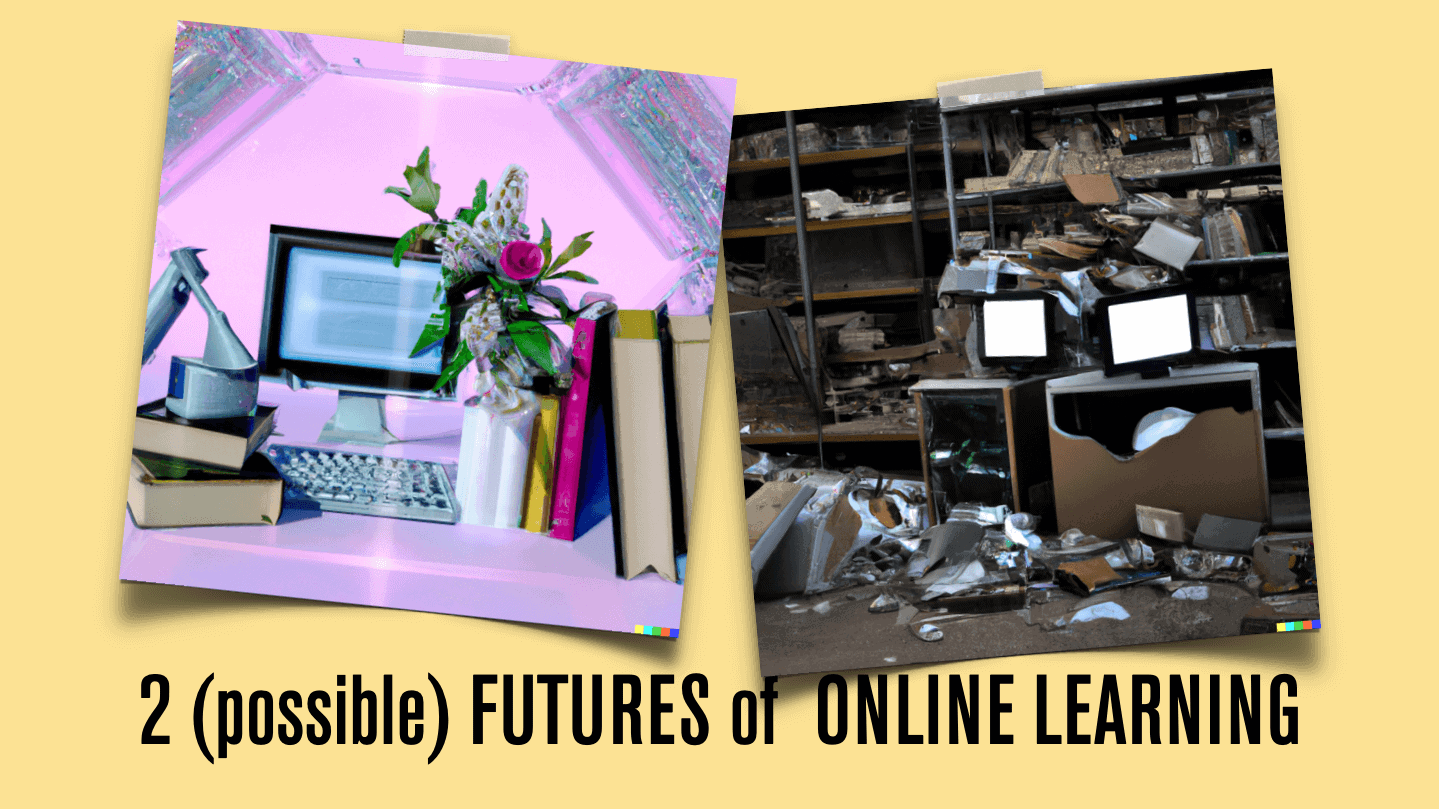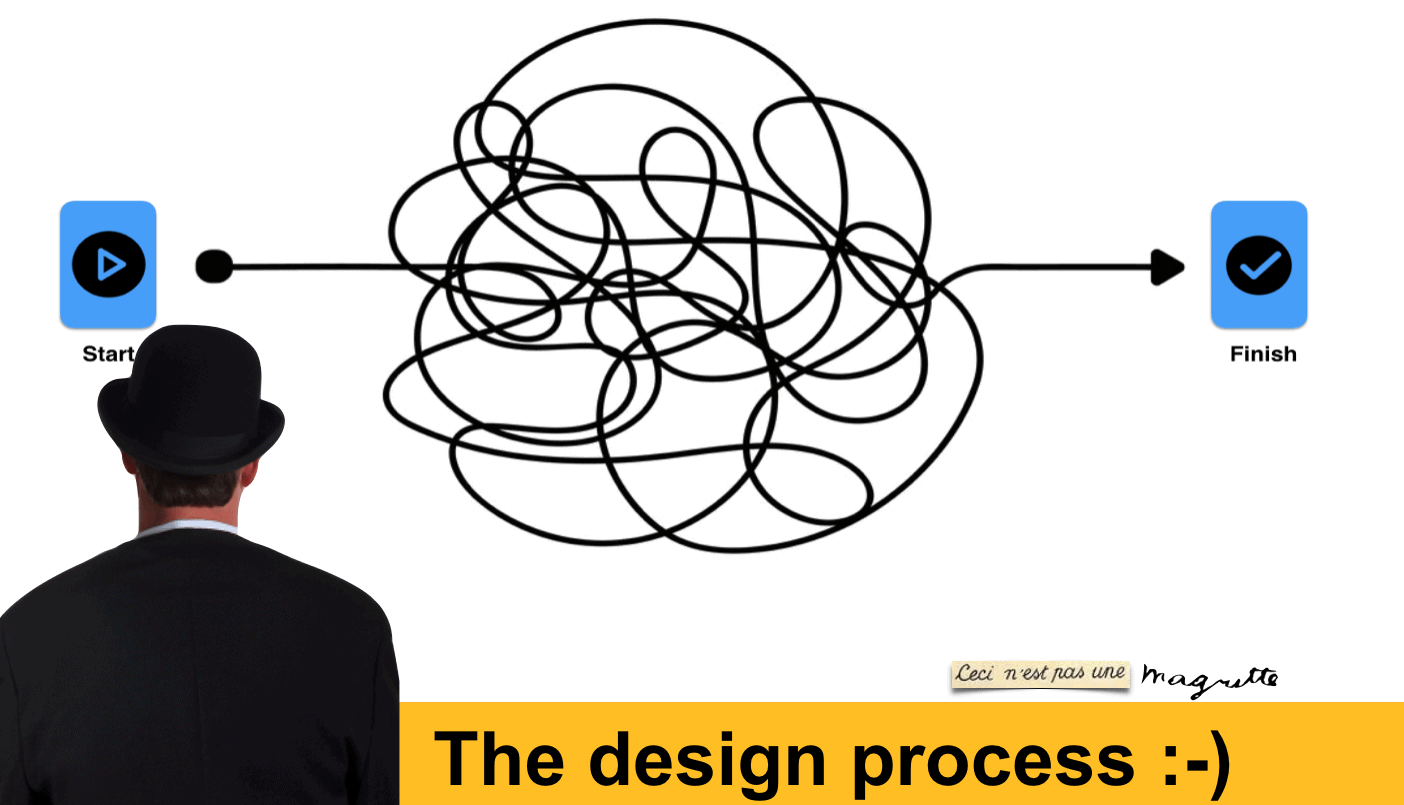I was invited to wrote a chapter for an edited book titled “The future of online education,” edited by Stephen Paul McKenzie, Lilani Arulkadacham, Jennifer Chung and Zahra Aziz. It was an opportunity for me and my co-authors Melissa Warr and Ben Scragg to engage in some seat of the pants futures thinking, some what-if speculation. As we write in the chapter
As a heuristic for exploring the future of online learning, we explore two possible futures, each at an end of a dystopian-utopian continuum. Specifically, we consider how human-centric, pedagogical values that include access, equity, student agency, creativity, and engagement might play out in these contexts. These contrasting futures, while imaginary, position us on the very real cusp of forking paths where the decisions we make now will have ripple effects on the yet-to-be-realized future of our teaching and learning institutions and systems.
It was a super-fun chapter to write, partly because we were given the freedom to speculate on possible futures, to extrapolate from trends we were seeing in the world around us, and to push them to the limits.
Abstract and citation below the image:

Abstract: During the COVID-19 pandemic in 2020, online learning became mainstream, enabling schools to continue operation even with students and teachers physically separated. In this chapter, we extend the trends we observed in pandemic online learning to describe two possible futures for online learning, one dystopian and one utopian. We argue that what differentiates these futures is less about the technological tools used and more about the broader processes, systems, and culture embedded with online learning. We call for deliberate reflection on the dynamic relationship among technological tools, processes, experiences, systems, and culture as we shape the future of online learning.
Mishra, P., Warr, M., & Scragg, B. (2022). Two possible futures of online learning. In S. P. McKenzie, L. Arulkadacham, J. Chung and Z. Aziz. (Eds). The future of online education: Advancements in learning and instruction. Nova.
Note: The image at the top of the page was created by me using 2 images created by Dall E 2 (the AI image generation software).





0 Comments